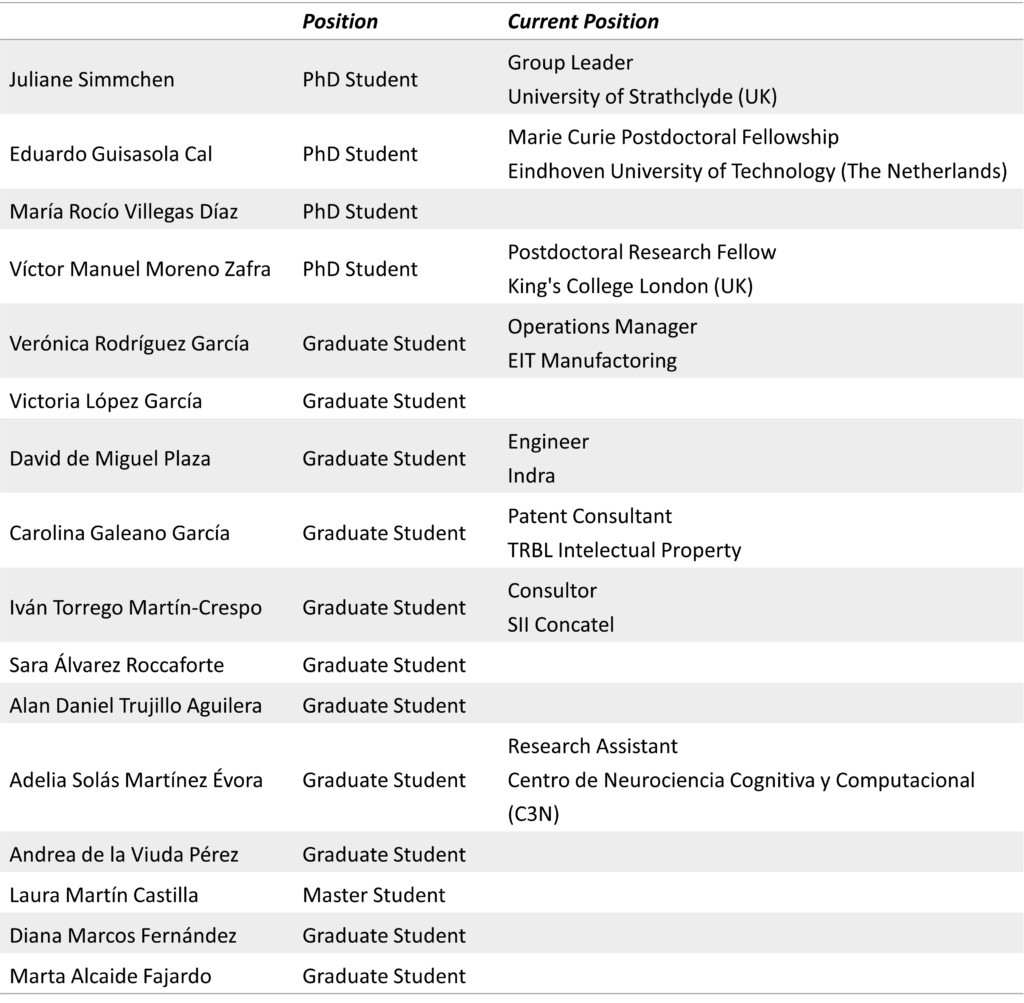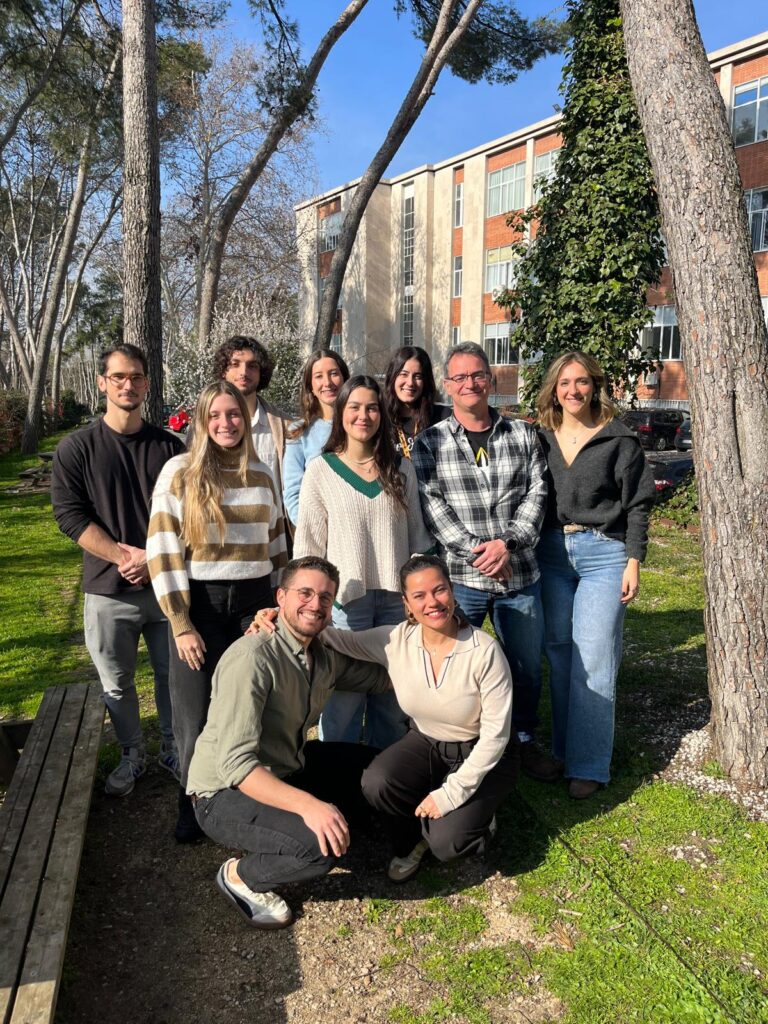
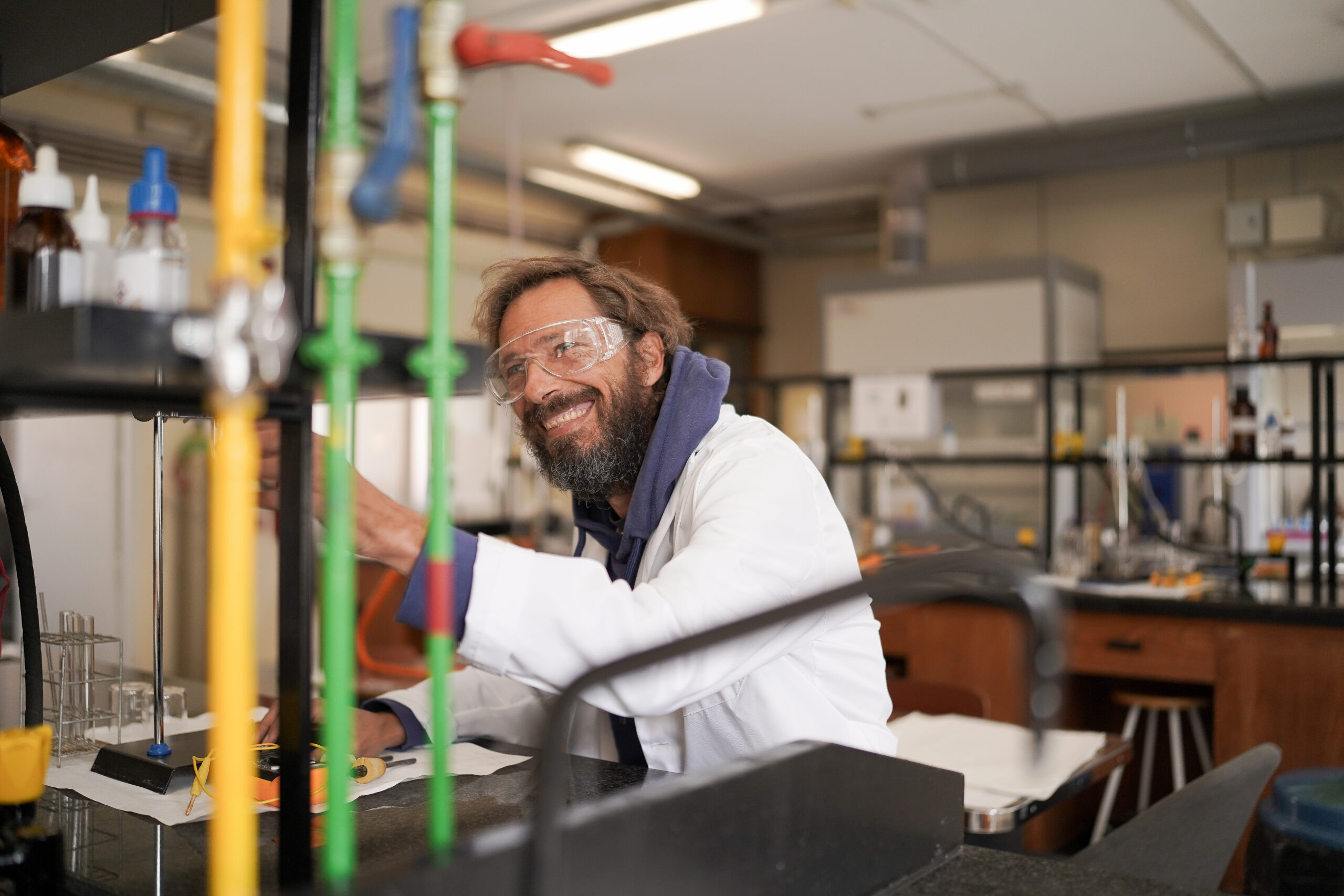
Iñigo Aguirre de Carcer was born in Bloomington (IN, USA), in 1976. He graduated in Chemistry (Organic) at Universidad Autónoma de Madrid (UAM), Spain in 2000. He continued his studies at the University of Washington (UW), obtaining a Ph.D. from the Department of Chemistry in 2008. After a short stage at the Nanoscience and Molecular Materials Lab back at UAM, he worked as a postdoctoral researcher at the School of Aeronautical Technical Engineering (EUTIA), Madrid Technical University (UPM). He was appointed Assistant Professor of Chemistry and Material Science at the Department of Aerospace Materials and Production (ETSIAE, UPM) in 2016 and later Associate Professor in 2022. His research interests lay at the use of organic and inorganic syntheses to probe structure function relationships in nano assemblies..
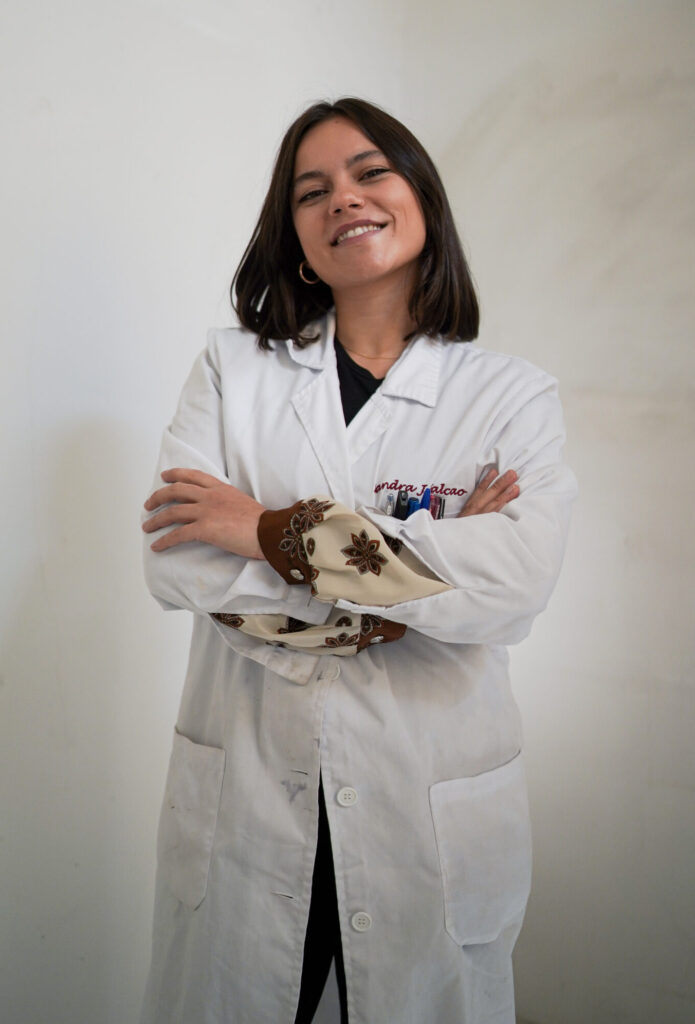
Sandra Jiménez Falcao obtained her degree in Chemistry in 2014 (Universidad Complutense de Madrid, UCM), her Master in Chemical Science and Technology (UCM) in 2015, and in 2021 she finished her PhD in Advanced Chemistry titled “Nanosensors and smart delivery systems based on porous materials” (UCM). Afterwards she worked in IMDEA Agua developing analytical methods for the determination of relevant environmental pollutants. In 2022 she obtained a Margarita Salas grant to do her postdoc at Universidad Rey Juan Carlos developing metallic complex based nanosystems for both environmental and biomedical purposes. She is currently working as a professor and researcher at the Materials and Aerospace Production Department in Universidad Politécnica de Madrid. Sandra’s scientific activity is focused in the field of materials science, for the development of a variety of nanosystems based on inorganic supports (like mesoporous silica, titanium dioxide or metal nanoparticles), organic moieties, and biomolecules like enzymes or aptamers.

Jorge Parra Nieto was born in Madrid (Spain) in 1996. He graduated in Chemistry and completed his Master in Science and Chemical Technology
at Universidad Complutense de Madrid working in the preparation and characterization of
nanomaterials and their use both as signaling elements in optical or electrochemical sensors,
and as smart delivery sistems.
Nowadays, he is Lab Chemistry Instructor and researcher at the Materials and Aerospace Production Department in Universidad Politécnica de Madridin being in the third year of his PhD thesis working in the development of stimuli-responsive nanoassemblies capable to trigger self-sustained immune responses in antitumoral therapy.
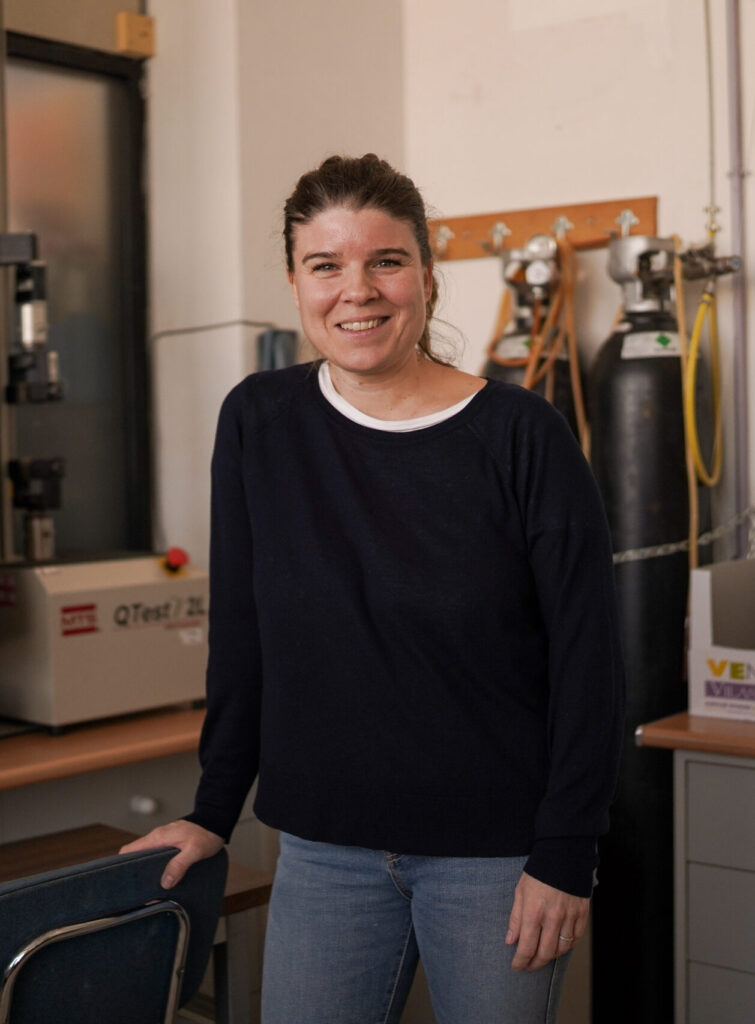
Mª Amor García del Cid started her chemical studies at the University of Castilla La Mancha (UCLM) after transferring to Universidad Complutense de Madrid (UCM) she obtained a Bachelor’s degree in Chemistry in 2008. After receiving a master’s Degree in polymer science in 2012 (UNED) she continued her graduate research studies at Madrid Technical University (UPM) in the synthesis and characterization of nanocomposites, graduating with a PhD in chemistry in 2017. She is currently a technical staff member at the Department of Materials and Aerospace Production (UPM). Her research interests are focused on the applications of polymeric materials in the field of nanomedicine.
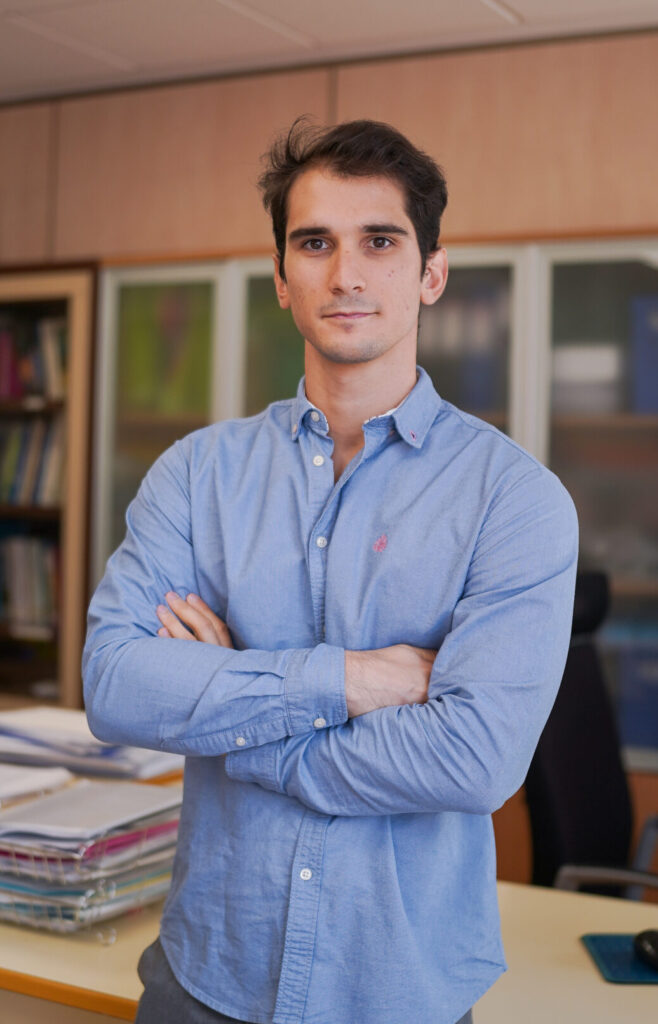
Javier González Larre was born in Madrid in 1999. He obtained his bachelor’s degree in Biomedicine at Universidad Francisco de Vitoria in 2023. He worked in a Microbiology lab as a research assistant at Tufts University (Boston, MA, US), where he researched the electron transport chain of anaerobic bacteria. In 2024, he obtained his Master’s degree in Biomaterials at Universidad Complutense de Madrid. During this year, he joined the ONT group as a Master’s student, where he worked on a project involving the synthesis of silica and liposome-based nanosystems to enhance cellular therapy for cancer therapy.
Javier is currently coursing his first year of PhD in Biomedical Engineering at UPM, where he is working as a researcher on a project involving the development of combinatory pharmacological nano-therapies for neuroblastoma and nanosystem assembly with microfluidic reactors.
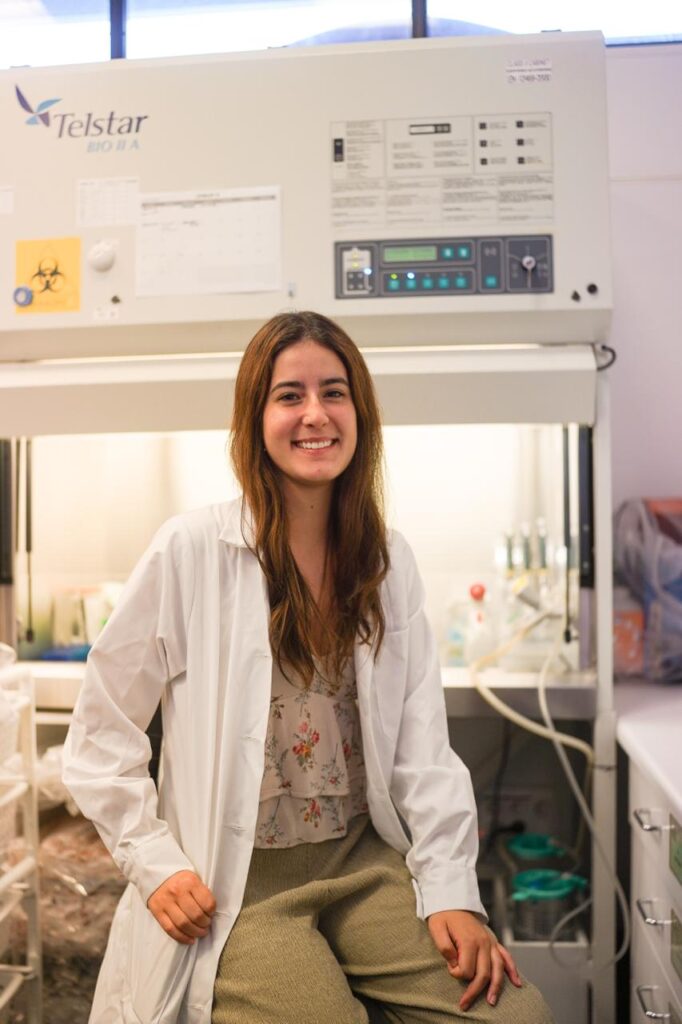
Alicia Arroyo Nogales was born in Madrid (2001). She graduated in Biotechnology at Universidad Politécnica de Madrid and carried out her undergraduate research in our lab developing protocells capable to deliver enzymatic tandems with antitumoral activity. After completing her Master in Biochemistry, Molecular Biology and Biomedicine at Universidad Complutense de Madrid working in the development of double functionalized liposomes to act as bridge between tumoral and immune cells, she is currently a Research Assistant in ONT lab, being in the first year of her PhD thesis aiming at boosting CAR T therapies with smart nanomedicines for the effective treatment of neuroblastoma.
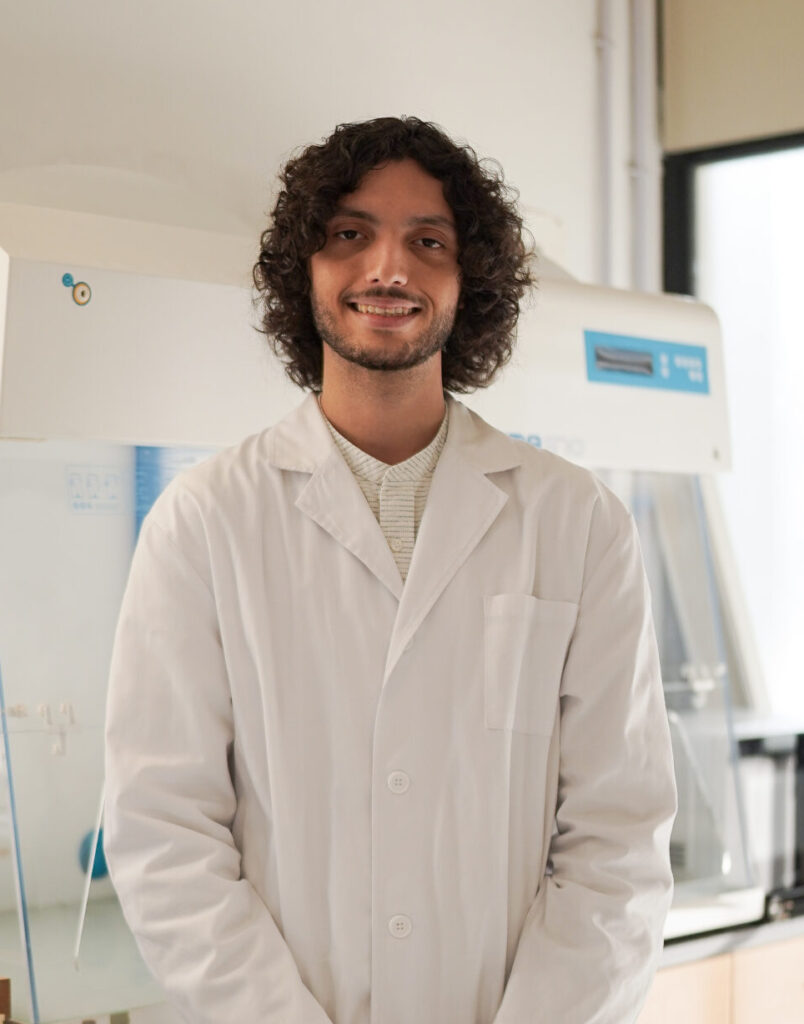
Guillermo Plaza Palomo was born in Madrid (2002). He graduated in medical biotechnology, specializing in fields such as pharmaceutical design and development of bio and nanomaterials. In 2023, he joined the ONT lab to conduct his undergraduate research, aimed at the development of highly penetrative drug-loaded liposomes and silicasomes capable of reaching deep areas of the tumor. Currently, he is pursuing a Master’s degree in Biomaterials at Universidad Complutense de Madrid and is working on devising multifaceted nanomedical strategies to tackle the challenges associated with solid tumor treatment.
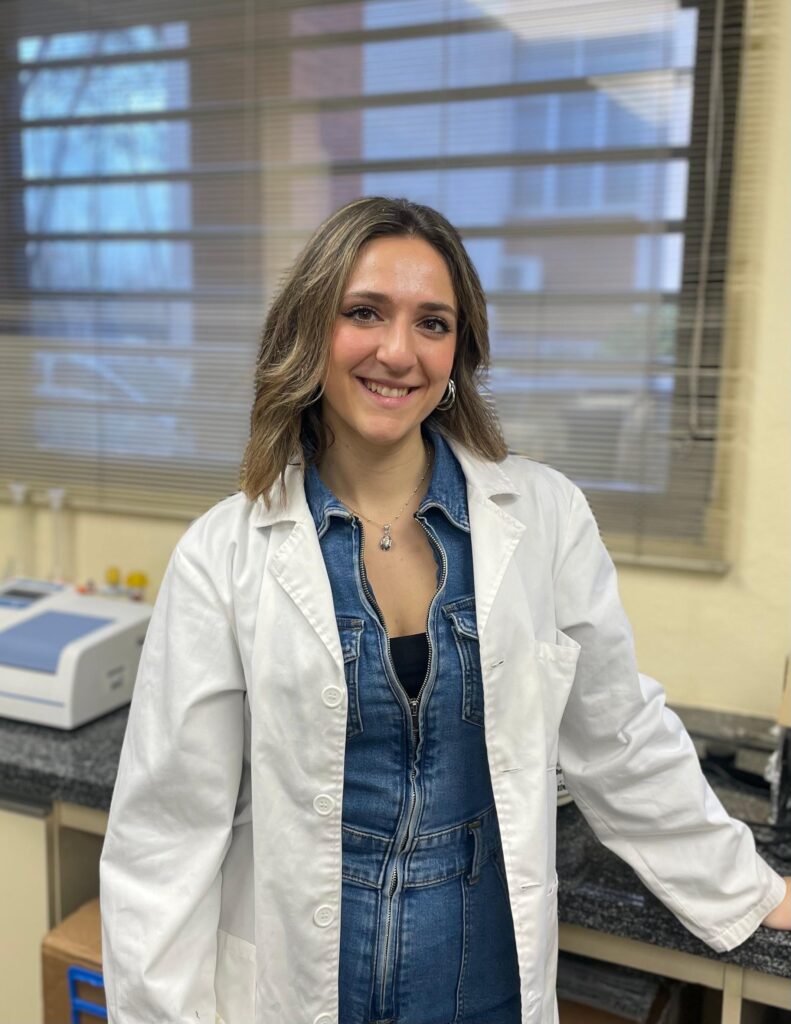
Diana Benita Donadios graduated in Chemistry at Universidad Complutense de Madrid, UCM in 2024. She completed her degree with an undergraduate research project focused on the development of WE43 magnesium alloys loaded with anti-corrosion drugs. Additionally, she worked as researcher in ICP-CSIC working in the development of heterogeneous enzymatic catalysts to degrade cellulose. Nowadays, she is pursuing a Master’s degree in Biomaterials at Universidad Complutense de Madrid and is working on the synthesis and application of superparamagnetic protocells for antitumoral therapy which exploited the synergic action between hyperthermia and drug delivery.
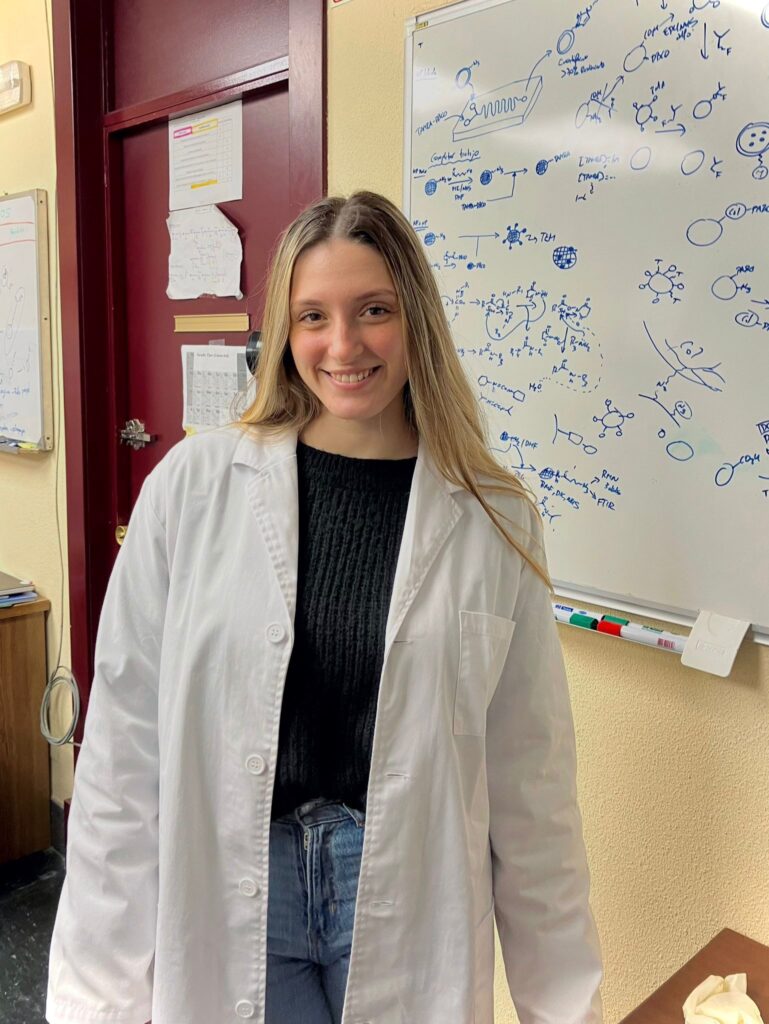
Lorena Cadalso González was born in Madrid (2003). She is currently finishing the last year of Biotechnology degree at Polytechnic University of Madrid (UPM). She obtained an EELISA credential in “Advanced Materials for a Sustainable Future”, working on the development of Biliary stents for cancer.
Her studies focus on the application of innovative biotechnological methods in the healthcare field, with an emphasis on cellular engineering, immunotherapies, and regenerative medicine. She has recently joined to ONT, working on the development of dual-targeting protocells with encapsulated enzymes which are designed to weaken the extracellular matrix of solid tumors enhancing the effectiveness of the therapy.
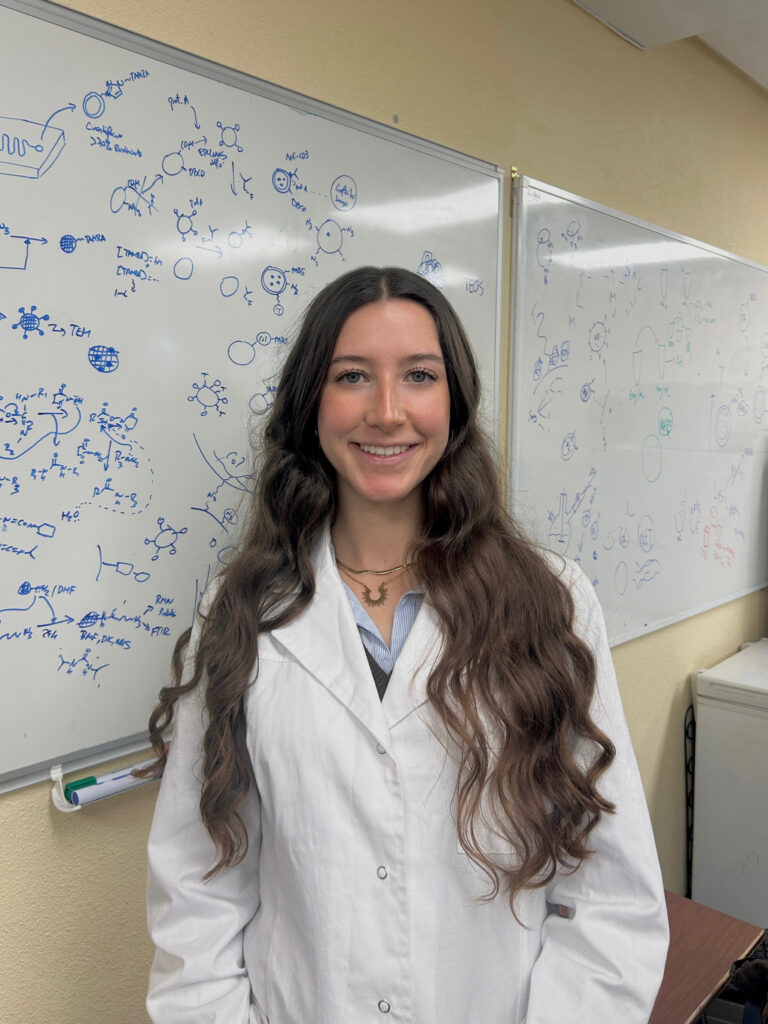
Lara Calvo Jiménez was born in Madrid in 2003 and is a Biotechnology student at Universidad Politécnica de Madrid (UPM).
Passionate about innovation and new challenges, she has actively participated in initiatives such as the EELISA (European Engineering Learning Innovation and Science Alliance) challenge, where she and her team developed a brand-new patented design for the treatment of plagiocephaly in newborns using biomaterials. In 2024, she represented UPM as part of the Spanish delegation at the World Food Forum (WFF) held at the FAO headquarters in Rome.
She has enthusiastically joined the ONT group to conduct her Bachelor’s Thesis (TFG), focusing on the development of CAR-T cell therapies combined with nanotechnology for neuroblastoma treatment.
ALUMNI
